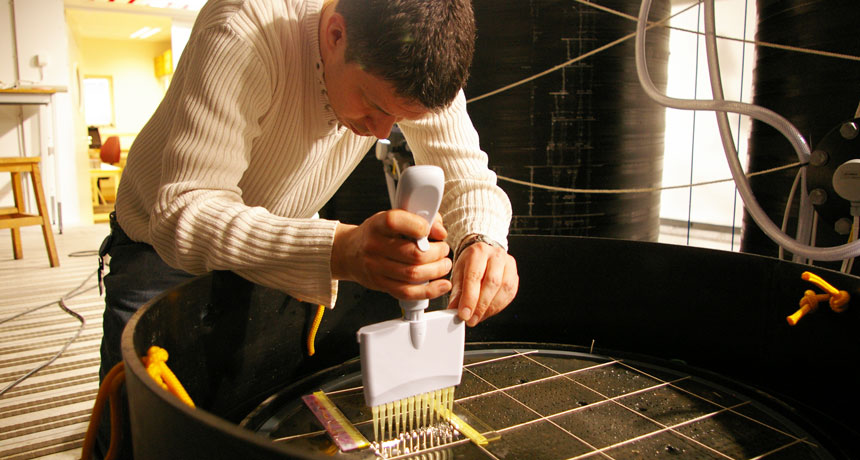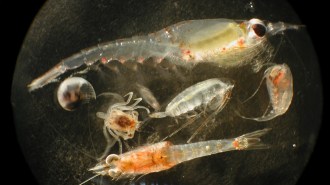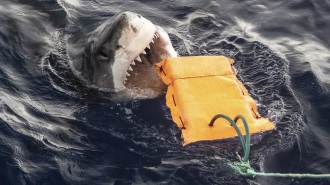
MEDDLESOME MERCURY Increased runoff into Earth’s oceans could increase methylmercury concentrations in marine ecosystems by altering the food web, new laboratory tests show. Here a researcher adds methylmercury to a vat containing coastal microbes.
Sofi Jonsson




